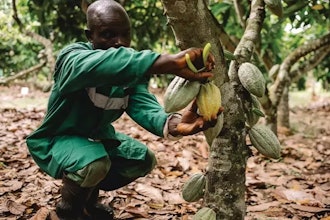
WASHINGTON (AP) — The Biden administration dropped Nicaragua from a list of countries that can ship sugar to the United State at low import tax rates as the U.S. intensifies economic pressure on the authoritarian government of president Daniel Ortega.
The U.S. hands out sugar import quotas annually by country and imposes relatively modest levies on shipments that come in below the cutoff.
The Office of the U.S. Trade Representative put out a list late Wednesday allocating quotas to 39 countries from Argentina to Zimbabwe for just over 1.1 million metric tons for raw sugar cane. The quotas cover the budget year 2023, which starts Oct. 1. Nicaragua, which got a quota of more than 22,000 metric tons in budget year 2022, was excluded from the 2023 list.
Nicaragua last year exported $83.5 million worth of sugar to the United States, according to the U.S. Department of Agriculture.
The administration has been considering ways to turn up the heat on the Nicaraguan government, which last year held what the U.S. considered daily show trails against antigovernment activists ahead of the fall elections. His likely opponents locked out of the contest, Ortega easily won a fourth straight term. The U.S. also accuses the Ortega government of corruption and sees the country's close relationship with Russia as a regional security threat.
Mario Amador, president of Nicaragua’s National Sugar Producers’ Commission, said he was caught off guard by the decision and called it unfortunate. He said that neither the Nicaraguan nor U.S. governments had given him advance notice. Amador said he would try to speak with officials at the U.S. embassy in Managua and the Nicaraguan industry and trade ministry upon his return from a business trip to Mexico.
“It is an issue of pressures on the government that undoubtedly affect hundreds of people,” Amador said.
He said the move by Washington would affect four sugar mills, some 800 producers and their families, as well as investors from Guatemala, Colombia, Spain, the United States and Nicaragua.
Nicaragua’s sugar sector produces nearly 2 million tons annually, more than half of which is exported. The approximately $200 million that it generates accounts for about 4% of Nicaragua’s gross national product and employs directly and indirectly some 150,000 people, according to the sugar commission.
The commission said that that sugar would have to be diverted to other, less lucrative markets.






















